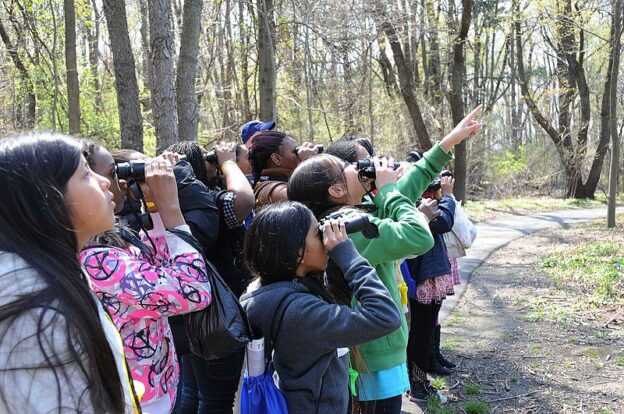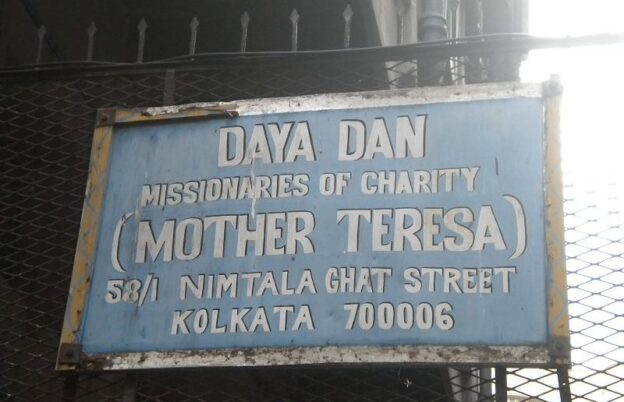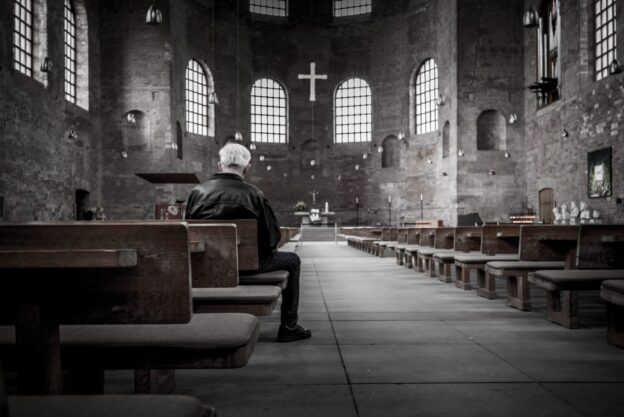Note from the Editor: This reprinted post reflects a few of the many experiences encountered by some of our Wesleyan Methodist clergy in North America. Today as we appreciate the legacy of Dr. King’s work, we also commit ourselves to continue to pursue justice. It is a gift to honor their voices today.
A note about the following reflections from Black and Hispanic clergy:
These accounts have been given by denominational leaders, academics, and clergy from across Wesleyan Methodist denominations.
As a white editor, I have been keenly conscious of the weight of holding these testimonies with care and respect. Content has been edited for length. As much as possible, editorial work has been extremely light in order to stay out of the way and allow the words and accounts to speak for themselves.
Ministry is not easy and white pastors have many stories of difficult parishioners or hard seasons. These accounts illustrate the unique individual histories of minority pastors – and the unique challenges they continue to face on top of regular ministry demands.
Elizabeth Glass Turner
Editor, A Wesleyan Accent
**********
“It took me some time to share these reflections because in recalling these experiences, it was like pulling the Band-Aid off the wound. Some wounds never really heal because another one plops on top of it. They just become scar tissue that irritates us under the skin.” – a contributor
Have you ever been called a racial epithet? If so, what were the circumstances?
Rev. Dr. Joy Moore, UMC: I have often described my youth and young adulthood as living in a gap in history, a period of promise somewhere between my 5th and 12th birthdays as I experienced life under the protection of my parents. It would be the summer after my freshman year of high school when I would be confronted with my racial status. A friend and I had volunteered to work in a Catholic program for impoverished inner-city youth in Milwaukee. One day, as we walked back to where we were staying, a few younger boys rode around us on their bikes shouting at us. My friend was visibly shaken by their taunts. I, with a newly attained teenage defiance, questioned the pre-teens as to whom they were referring. My friend stared with incredulity at my apparent unawareness that their characterization referenced us. But my simple question dispersed the bikers as quickly as their name-calling dispersed my innocence. It was the first time a white person had addressed me as “nigger”…
Rev. Yvette Blair-Lavallais, UMC: I was called a nigger while pulling out of the parking lot of a grocery store. Another motorist almost cut me off as I drove down the lot and I honked my horn. The passenger rolled his window down and hurled the slur at me, laughed and topped it off by flipping his middle finger at me. I was stunned and frozen for a few minutes, but I recovered and composed myself quickly and drove on away. The car was full of white boys and I wasn’t sure what else they might do.
Rev. Edgar Bazan, UMC: What is said with a simple scowl sometimes is even more powerful than words. There have been a few times when I experienced rejection because I am Hispanic and have an accent when I speak. Even though I am very confident of myself, it hurts to feel rejected because of who I am. What am I supposed to do, bleach my skin? Is my worth devalued because I moved to live in a different geographical area? Of course not, we know this if we are decent people. I know people that have been deeply hurt not just by looks but by actual hate-filled and ignorant racial slurs. It hurts me: things like, “wet-back, go back to your country, speak English, you are not American,” and so on.
Have you ever been physically or verbally harassed because of your race or ethnicity? If so, what were the circumstances?
Rev. Marlan Branch, AME: While living in Glencoe, IL, my dad was actually on the news because he worked in Evanston and would have to drive home late every day to Glencoe. He would get pulled over by the police at least twice a week once he reached the white neighborhood.
One time my friend and I were walking to his gymnastics practice on the North Shore. He was one year older than me and was black too. Here we were, two black boys – me in 7th grade and he in 8th grade. The police stopped us, searched his bag and our persons because we “fit the description.” Apparently there had been some robberies in the area.
Rev. Yvette Blair-Lavallais: I’ll speak from the point of being harassed in an academic setting and in a corporate setting. When I was an undergraduate, studying journalism, one of my professors said, “you dress so cute all the time. It’s like you’re white. You even wear your hair like a white girl. I don’t even wear nice clothes like that. And for the life of me I can’t figure out how you’re doing that because you’re not white. I’ve decided that I don’t like you.” Imagine my frustration, anger and disbelief that a professor, someone who is entrusted to present a fair and balanced environment in higher education, (instructing the class in balanced news coverage of all things) actually told me those words outright. She then used her white privilege to begin failing me in class. I ultimately passed the class but my work suffered because she intentionally always found fault with anything that I wrote.
During my career working as a communications director for a major national non-profit, I encountered harassment from a peer when I was promoted from a director position to a regional vice president position. The peer, who was in my same position (just in a different market) verbalized that the only reason that I was promoted is because I am black and that another team member, who had been at the company longer, should have been given that position. She said that I took that team member’s spot. Both team members were white. The working relationship became strained.
Rev. Dr. Joy Moore: Only by giving attention to history did I become aware that the announcement of the right to vote was not my achievement but a delayed right granted to United States citizens of my race. It would require a similar benefit of hindsight to learn that my father’s refusal to stop when we travelled was neither stinginess nor stubbornness in response to my naïve pleas for a bathroom. Rather, his concern was safeguarding his young family from humiliations levied as refusal of service. Because of this, I never heard the restaurant owner who told my parents if they came around to the back, he would make an exception to serve us since our family was fairer skinned. I didn’t yet comprehend the rest areas we frequented as we drove south were only for “colored.”
Later, when shopping alone back in Chicago, caught off-guard one afternoon, I stopped in a drug store to make an emergency purchase. Just as I picked up the package and turned toward the checkout counter, the Middle Eastern shop owner accosted me with an accusation of shoplifting. Publicly, my person and purse was searched, displaying for all to see my wallet and the cash I was carrying while drawing attention to the lone item in my possession, a box of sanitary napkins. That afternoon I perceived the difference between humiliation and indignity, and the contrasting response each fuels in me. The former, shame; the latter, animosity.
The public elementary school education I received in segregated Chicago more than prepared me for private secondary education. So there would be no humiliation when I was again accused of wrongdoing during my freshman year of college. Upon reading my final paper for a sociology class, a male professor accused me of plagiarism, insisting, “no black student from Chicago could write like this.”
As the white sociology professor attempted to accuse my writing skills, the white English professor challenged the premise of my argument. Avoiding any stereotypes of African Americans, she enumerated the evidence of Asian mathematical acumen, the fiery tempers of redheads and simple-minded blondes. Knowing I had taken college-level English classes in high school, her dispute with my paper focused on its argument: nurture has more to do with development than nature.
Rev. Otis T. McMillan, AMEZ: I have been pulled over by two Moore county sheriffs, with their hands on their guns, with no explanation. They saw my sign on the back window and my clergy collar, they let me go.
Barbara and I were pulled over on NC 87 by a North Carolina Highway Patrolman, who said I was going a little fast. When I asked, “how fast was I traveling?” he said, “do you want the warning or do you want a ticket?”
For you personally, as an individual, what was the most painful experience you’ve had related to your race or ethnicity?
Rev. Yvette Blair Lavallais: The first time that I really began to understand that my race and skin color was considered “less than” is when I was in the first grade. My family had moved to a neighborhood that was slowly becoming diverse as more Black families began to call the area home. A little girl in my class named Ruthie, who played hopscotch with me and my other friends, was a little blonde-haired girl who spoke softly and wore her hair in a choppy pixie-cut. We had become fast friends and always played together at recess. I didn’t know it at the time, but Ruthie’s mother was disgusted that her daughter had made friends with a black girl. On a particular day that the mom rode her bicycle to pick up Ruthie, she instructed Ruthie to tell me that she was taking Ruthie out of our school and moving her somewhere else. When Ruthie related the news to me, these were the words that this little six-year-old girl struggled and stammered to say, being very careful to try not to tell me the exact words: “My mom says that I can’t play with you anymore because you’re black and we can’t be friends. I won’t be coming back to this school either.”
That very afternoon, my mother and I had a long talk about that quick yet painful moment. She explained to me that some people are just filled with hatred and that there will be people like that who exist in the world. To this day, I still remember that because it ultimately began to shape my experiences as a little black girl growing up in a society where parents didn’t bite their tongues to express how they felt about the way God had made me. And that I needed to know that being in this black skin was a reason not to be friends with me.
The other defining moment is when I was in junior high school. It was open house night and I was helping my math teacher set up her room. Her daughter, who was about eight years old, walked up to me, stood up in a chair and came face to face with me. She looked me right in the eyes and said, “I don’t like you because you’re black and I don’t like black people.” I was stunned but not so naïve to think that my teacher’s daughter uttering those words could possibly have just happened. Once more, my mom and I had a conversation about this occurrence.
Rev. Marlan Branch: I have had the fortunate opportunity to live and grow up in many different places. I’ve lived in the Deep South, the west side of Chicago, Glencoe (IL) where I and one other black girl were the only black kids in our grade from 6th to 8th grade, and Evanston (IL) which is a conglomerate of every demographic of people.
While in middle school I had to take a music class. I didn’t realize it then, but every class period the teacher would send me to a room by myself to “practice” and she would never come and teach me the music like the rest of the class.
I was the only little black kid in the class.
For you as an individual, what is the most common misconception you encounter about your race and identity?
Rev. Yvette Blair-Lavallais: The leading one is that we are all thieves and looking for an opportunity to steal something. I surmised that to be true on the day that I was stopped by a police officer. I was driving my brand-new SUV that I had saved up the down payment for and purchased. It was in my name. I was in downtown Dallas and had just pulled off from a “red to green light” when the patrol car came up behind me. The officer asked me whose car was this because it couldn’t possibly be mine. He told me that it was too expensive of a car for me to be driving. When I showed him my license, registration, and papers, he was puzzled that the SUV actually belonged to me. I didn’t get a ticket, but I did get a reality check that once more being a black person driving a nice vehicle was “suspicious.”
Another misconception is that black women have the “black angry woman” syndrome. I was warned about this during one of my experiences in the ordination candidacy process in The United Methodist Church. I was told by a lay and a clergy person, “you’re very articulate for a black woman. You’d make a good associate pastor almost anywhere in this conference. Just make sure you don’t do like some of the other black clergy women we have and become known as the black angry woman.”
There is a misconception that black people don’t speak the King’s English, that we can’t make a complete sentence. When we shatter that perception, there is visible shock and surprise often accompanied by, “how did you learn to speak to eloquently?”
Do you estimate that the Church in general or local congregations specifically are more, less, or the same amount of welcoming than interactions in general society? Do you worship in a diverse congregation or one where you are a majority or a minority?
Rev. Edgar Bazan: In general, churches are places where one experiences hospitality and acceptance. As new guests or visitors, we typically get a warm welcome. We are encouraged to join the church, which is great. But once we do and have spent time as insiders, we realize that to share power with someone that has a different heritage or race is not always as welcoming. I am troubled when I hear of a white church with a Hispanic ministry because typically they are “those people” or are the “Hispanic pastor congregation.”
Worshiping as a minority of non-white heritage means by default that we are not going to be in positions of power or influence unless we prove ourselves to be worthy. Yes, churches are typically healthier places than secular ones when it comes to race, but being welcoming is just a fraction of what it means to love our neighbor as we love ourselves.
Rev. Yvette Blair-Lavallais: I am serving in what the United Methodist Church calls a “cross-racial appointment,” meaning that I am a non-white pastor serving a predominantly white congregation. My experiences so far have been positive. Both congregations have been welcoming and have shown love and hospitality toward me. An elderly man shared with me that when he heard I was coming to the church he was a bit apprehensive. He was already getting adjusted to having a woman pastor and now they were sending another woman, a black one this time. He followed it by telling me that this was a first for him in 50 years of being a member and after getting to know me, he was glad that I was here. On another occasion, a woman in her 70’s walked up to me after the worship celebration, grasped my hands and told me “I am proud to call you my pastor.” That was a shocking yet beautiful moment for me.
I preached a difficult message the Sunday following the deaths of Alton Sterling, Philando Castile, and the five Dallas law enforcement officers. A member told me about her experience of being 10 years old in Birmingham when the 16th Street Baptist Church was bombed in 1963 and four black girls lost their lives. She shared, “imagine in 2016 that the Holy Spirit would come in the form of a black woman pastor and preach to this congregation.” That too was a beautiful moment. I don’t know how this registers on the race barometer compared to society in general, but it is a refreshing start.
Rev. Dr. Joy Moore: The neighborhood congregation where I attended was affiliated with the predominately white National Council of Community Churches. Conferences and area collaborations afforded exposure to Christians who were of a variety of cultures other than my own. It seemed, from this limited experience, that the church was the best place to strive for and demonstrate unity across racial barriers.
But a decade into ministry, I was assigned a congregation where five women worked incessantly to remove me from ministry. Bold to place their fabrications and misrepresentations into writing, these women informed the bishop they would “not allow me a success.” Contrary to the affirmation of the majority of the 200-member congregation, these women drafted a letter in response to the cabinet’s inquiry whether my being the first woman of color to serve the congregation might have any bearing on their opinion. About 30 persons signed the letter – most who no longer attended the church or had even lived in the state during the entire span of my life. Their response: “How dare you call us racist!” A member of the cabinet informed me that had I not had a reputation born of a decade of service in that conference, my ministry indeed would have ended on the strength of their accusations.
What experience do you most wish someone different than yourself could experience for themselves in order to better understand the reality of your life?
Rev. Yvette Blair-Lavallais: To walk into a store and have a white sales associate follow you around, point you in the direction of the clearance rack and ask you what are you looking to steal. To be the only black person having lunch with a group of white colleagues and having your order taken last and your food brought out last. To go on your third interview for a public relations position and be told, “you are so impressive, you would do well in this role but you don’t look the part because these jobs are usually reserved for blonde-haired girls.” To step into an elevator and watch as a white woman clutches her purse because she believes you might be a pick-pocketer. To be told in a work setting that it’s highly unusual to be black and to be this smart.
How does it feel to be the only person of color in a predominantly Caucasian conference room, congregation, school, or meeting?
Rev. Edgar Bazan: A good friend of mine that was an associate pastor many years in a predominantly white church shared with me one occasion: while in the church office a member of the church came in to visit and greeted everyone else except him. Without addressing him in any way, this individual said to the secretary, “when did we get a new custodian?” My good friend was Hispanic and this individual was white. I have had similar experiences in which I needed to do more in order to prove my position or credentials because I am Hispanic.
What gestures, actions or attitudes from others have you found to be most meaningful and healing?
Rev. Yvette Blair-Lavallais: I have colleagues in the North Texas Conference, Central Conference and Texas Conference who are intentional when it comes to creating environments of diversity. They are very much aware of the imbalance of black and brown representation in the pulpit and in leadership roles within the Conferences, inviting us to be participants in programs and to serve in other areas that have historically been unopen to us.
Beyond the church setting, I have white friends and colleagues whom I interact with regularly and catch up with over coffee. Some of these friends are the same ones who have responded right away in my seasons of joy and sorrow. Their presence, willingness to listen, their empathetic ear and rise to action are all helpful and meaningful.
Closing reflections:
“I wish I had known back then what I know now.”
**********
“The victories of the Civil Rights Movement seemed to make possible a bridge across the gap such that persons might comprehend that human capacity for intelligence, morality, and character were not divinely meted out during creation to certain continents of the globe. The gap in history seems to be again widening. The brief period of promise somewhere between my 5th and 12th birthdays closed around history repeating itself as I experience what my parents tried to protect me from.
I’m old enough that my first experience of racism is not nearly as defining as my current experiences. Then, I was taught to expect what I am experiencing. But I had role models who were respected, if only by our community. Today, with instant access to every random opinion or public accusation, the volume of the disrespect is as visual as the bodies hanging from trees when my parents were young. It will be more difficult to call forth a beloved community with 21st century claims for recovering the America of the 1950s, especially if black and brown bodies experience that recovery with 19th century violence.
The caution to “mind the gap” on London’s Underground is not to fall into it. It serves as a reminder of the gap’s presence and a summons to avoid it. Those who claim their identity by race, gender, nation, political party, economic or marital status are reminded to be aware of the gap created by these associations. Avoid excluding others as they exclude you. Instead, be mindful of the little things still sought to be achieved by each generation: human dignity, respect, and recognition that the world for which Christ died includes the descendants of persons not born in Europe. Those who claim to be followers of Jesus are summoned to practice the community someone dared ask God to create.”
**********
“What is behind our words, what is deep in our hearts, that which makes us assume that just because an individual is of a certain race means that he or she can only aspire to limited options for personal development is in fact what is at the core of our race challenges. And this has to do with our lack of love for ourselves. If we could love ourselves with compassion and have self-awareness of our needs and suffering, we would be able to relate to others and treat them in the way we would like to be treated. But this is a rare sight. We are prevalently narcissistic in so many ways, that we don’t have a heart to go a mile in someone’s else’s shoes, let alone a second mile. Because I am the minority, I have learned to relate to those that are usually marginalized. So, when I am in a meeting where I am minority, for example, I am more sensitive to welcome and include those that are not noticed by the predominant group. I have suffered exclusion, and I don’t want anyone to be relegated to such experiences.”



 This winter a new CBS sitcom called
This winter a new CBS sitcom called 








